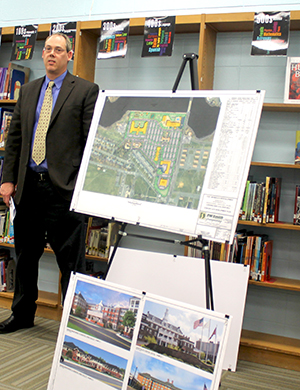
Oport hears proposal for fort property
May 20, 2016Attorney: Abatements good for city’s bottom line
May 20, 2016By Neil Schulman
Long Branch — The average tax bill for a Long Branch resident will go up about $160 this year, including all municipal, school, county and other taxes in the bill. But because the assessed values of properties changed so much, the effect on each homeowner is hard to predict.
At the May 10 City Council meeting, officials introduced the 2016 Municipal Budget, calling fo $55.7 million in spending. Of that amount, $37.2 million will come from municipal taxes, with the rest coming from state and federal aid, grants, and other sources of revenue such as meters and fines. Last year’s $54.7 million budget collected $35.8 million through municipal taxes.
But that’s only the municipal portion of the money the city must collect through taxes. The Long Branch School system will need $38.5 million in taxes, the county $11.9 million, and money must also be collected for the library and the county’s open space fund. (About 42 percent of property taxes in the city go to the school system, and 41 percent to the municipality.)
That means the total taxes to be collected are $89.7 million, up from $86.4 million last year.
“The taxes on the average assessed home here is only increasing about $162.98, overall,” said CFO Michael Martin. It’s effectively a 2.9¢ increase per $100 of assessed value.
But how your home compares to the average may have changed from last year. In 2015, the average Long Branch residence was assessed at $364,000. This year, due to the new assessment program in Monmouth County, the average one is assessed at $413,000.
But not all assessments increased at the same rate. Homes in one neighborhood, for example, might have become more desirable, and started selling for much more, leading theirs to increase more.
A rule of thumb is that a third of properties wind up paying less in taxes after an assessment, and a third wind up paying more. Long Branch officials at the meeting said those proportions might not be exact in this case for homeowners, because it also depends on whether businesses are being assessed more or not.
The largest expense in the city’s budget is salaries, $24.4 million, making up a little more than two-fifths of the budget. Other expenses (such as equipment and supplies) make up $22.7 million, about two-fifths. The remaining budget goes to debt service ($5.6 million), a reserve for uncollected taxes ($2.0 million) capital expenses and deferred charges.




